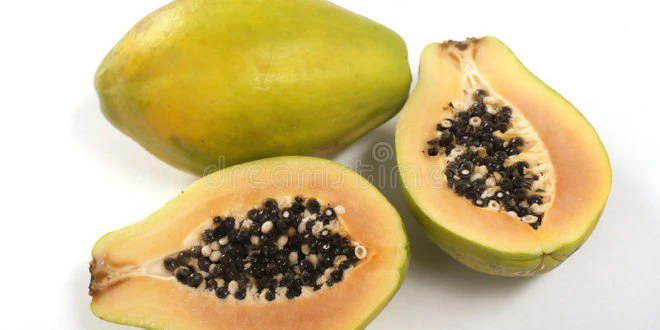Pawpaw, popularly known as Papaya is a fruit beloved for both its delicious flavor and exceptional nutrient profile. Unfortunately, many people often discard its seeds and favor the fruit’s sweet flesh.
What people don’t realize is that the seeds are not only edible but also highly nutritious.
However, some side effects may need to be considered before eating them. Papaya seeds contain a variety of essential micronutrients.
They’re especially high in polyphenols and flavonoids, two compounds that act as antioxidants to help promote your health, the seeds are packed with a good amount of healthy monounsaturated fatty acids, including oleic acid.
According to Healthline, this article explains some reasons why older men should chew pawpaw seeds regularly
1. Enhance your digestive health.
Papaya seeds are a good source of fiber, just like other seeds. Fiber adds bulk to your stools to encourage regularity as it passes through your digestive system undigested. According to Healthline, increasing your fiber intake may also enhance a number of other digestive health factors.
2. Could safeguard kidney health.
Your kidneys serve as a filter in your body, taking out waste and extra fluid to maintain your health. The health and functionality of your kidneys can be preserved and protected by eating papaya seeds. Papaya seeds are also a great source of antioxidants, which can prevent oxidative cell damage and safeguard kidney health.
3. It aids in the fight against infections.
Pawpaw seeds can kill certain fungi and parasites. According to Healthline, papaya seed extract was effective against three fungi strains, including the pathogen that causes yeast infections.
Some studies discovered that drinking an elixir made from dried papaya seeds and honey was significantly more effective than a placebo at killing intestinal parasites. However, further large-scale studies are needed to determine how eating papaya seeds may affect fungal and parasitic infections in humans.








